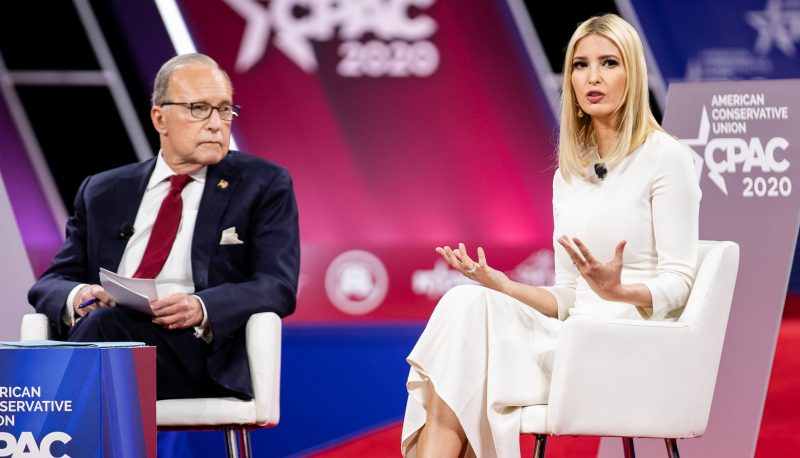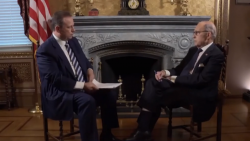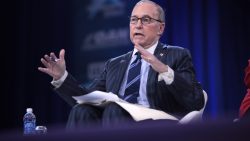Continuing the “America vs. socialism” theme of the Conservative Political Action Conference in National Harbor, Maryland, Friday, Ivanka Trump, daughter and adviser to President Donald Trump, and Larry Kudlow, Trump’s top economic adviser, presented the U.S. economy under Trump as a bastion of freedom under attack by socialist forces.
Kudlow, director of the National Economic Council, began the conversation by addressing the heightened anxiety around the coronavirus and the stock market, which had its worst week since 2008, telling CPAC attendees that socialism is a far bigger threat to the American economy than the coronavirus is.
“The virus is not going to sink the American economy. What is or could sink the American economy is the socialism coming from our friends on the other side of the aisle,” Kudlow said.
Kudlow told American investors that they shouldn’t worry if they’re longterm investors; he then proceeded to encourage investment, adding, “you might think about buying the dip.” Studies show that timing the market—trying to buy cheap stocks when the market crashes—doesn’t work, which prompts the question why Kudlow is encouraging it or if he’s just trying to make his boss happy.
“I am perfectly happy to have a socialist candidate,” Kudlow said. “The American model of free enterprise will whip socialism every time, hands down.”
Ivanka Trump, whose eponymous fashion company closed up shop in 2018 after increased pressure from boycotts, praised free-market capitalism, telling young people in the audience, “We are creating an economic opportunity for all Americans and will allow you to seize your dreams; we’re not going to be able to provide them. But we can create the playing field to allow you to realize your potential.”
Like her father, Ivanka Trump seems to have benefited from her father’s presidency. In 2019, as the president had begun negotiating a trade deal with China, the Chinese government awarded Ivanka Trump’s shuttered company five new trademarks. In their second year as aides to the president, both Ivanka Trump and her husband Jared Kushner made as much as $135 million in income, including some from Ivanka’s holdings in the Trump International Hotel in Washington, D.C., which is visited by those trying to curry political favor with the president.
Ivanka Trump, who has long presented herself as a proponent of women’s empowerment but has offered little substantive work on the issue, said her father was bringing economic opportunity to women worldwide. “This approach to embracing free enterprise is something this president has taken not just in domestic policy, but in our foreign policy,” she said, adding that in development assistance to other countries, the Trump administration “seeks to empower women in the developing world.” She characterized the White House message to other countries by saying, “We expect reforms to be taken so that women can fully and freely participate in your economy.”
But, as was mentioned earlier in the day by Secretary of State Mike Pompeo—to thunderous applause from the CPAC audience—the Trump administration has reinstated the Mexico City policy, which prevents any government assistance from even indirectly going to any nonprofits that provide abortion or abortion counseling overseas. Women’s rights advocates often refer to the policy as the “global gag rule.”
As NPR noted, a “study in the medical journal The Lancet suggests that the Mexico City policy has actually increased the rate of abortions by about 40% in the countries studied — likely because the funding ban caused a reduction in access to contraception and a consequent rise in unwanted pregnancies.” Reducing access to contraceptives and a woman’s right to choose hurts women’s economic empowerment, as unplanned pregnancies and child-rearing prevent women from investing in acquiring the skills and education that lead to gainful employment.








